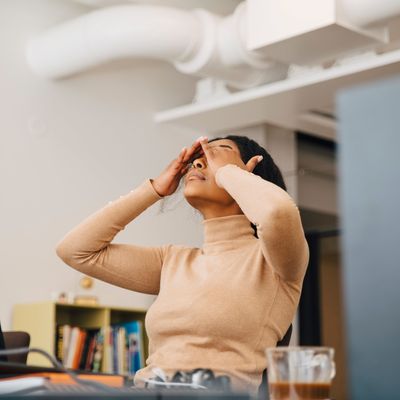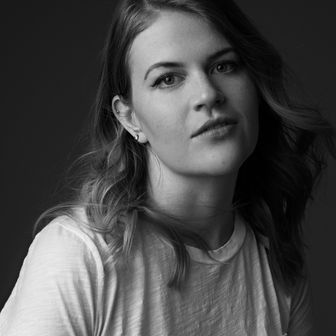
Yesterday, near the end of the work day, the light in my bedroom suddenly became unbearable. The glare from the various Ikea lamps around me felt like it was clawing through my corneas, up through my skull, and trapping my brain in a painful choke hold. I switched off every lamp and worked for the rest of the day in the dark, squinting through puckered lids at my computer screen, which also hurt my eyes, but that I couldn’t turn off because I needed it to work, and also to Google important concepts like “lizards in cowboy hats” as soon as they crossed my aching brain.
I’ve been experiencing eye strain like this a lot lately, ever since I started social distancing and working from home full-time over a month ago. Previously, although large portions of my days were still spent staring into various screens, I was able to break it up by commuting, going to the gym, hanging out within six feet of my friends — activities that allowed me to unglue my eyeballs for a while from my phone or computer. Now, there are no such interruptions. My entire day is spent in front of screens. I wake up, check my emails on my phone, sign on to work on my computer, take breaks from my computer to stare into my phone, then, when work is over, I gaze into the screen of my Nintendo Switch, where I relax by running around my Animal Crossing island, digging up fossils. I’m fortunate to be able to do all this — to still be able to work and communicate with my loved ones. But I feel like, at this rate, my eyes are just a couple of weeks away from shriveling up into raisins and dropping out of my head.
According to the Mayo Clinic, eye strain is a “common condition” that happens when your eyes get “tired from intense use.” It feels odd to call sitting slack-jawed in front of a grimy computer screen all day “intense,” but for my eyeballs, it is. As WebMD explains, when we’re staring at a screen for a long period of time, we tend to blink less, which can make our eyes dry and irritated, and even when we do blink, the glare, flickering, and contrast on screens is hard on our eyes. Too much screen time can lead to blurry vision, headaches, increased sensitivity to light, difficulty concentrating, and soreness in your neck, shoulders, and back.
Fortunately, the condition is not considered serious — though the Mayo Clinic concedes it is “annoying” — and your eyes are not going to shrivel up into your sockets. Here are some measures you can take to give your eyes a rest in between looking at the bad screens (work, news) and the good screens (games, TV shows, and videos of puppies in aquariums).
Blink regularly
That’s what WebMD says. I mean, sure. Why not give it a try!
Make your text larger
My friend Madison Malone Kircher has the font on her phone set so big that astronauts on the International Space Station could easily read her texts. I used to make fun of her for this, but a larger font can significantly reduce the strain on your eyes. Who’s laughing now?
Make sure there’s enough light
WebMD explains that the screen on your device should not be brighter than the room you’re in or it will be even harder on your eyes. In short, don’t do what I did yesterday when I turned off all my Ikea lamps.
Take breaks
Even if you can’t go outside, taking a break from your screen to look at something else in your room, like your pet or your pile of dirty laundry, can help give your eyes a break. WebMD suggests the 20-20-20 rule: “Every 20 minutes, look at an object at least 20 feet away for at least 20 seconds.”
Use a screen filter
Every man I have ever dated in my life has urged me to use screen filters. They’re simply obsessed with them. They love showing off their sepia-colored screens and talking about how harmful blue light is. I’ve never downloaded one of these filters though. When you’re in a relationship, it’s important to maintain a sense of self independent from your partner, and my self is someone who refuses to have a dingy-looking screen, even if it makes her eyes hurt.
But maybe now is the time for change. Apps like F.lux filter out the blue light on screens. On the spectrum of visible light, blue light has the highest energy, which makes it the most strenuous to look at. Filtering this out of your screen makes it easier on the eyes and less disruptive to your circadian rhythm. If you have a Mac, built-in features like Dark Mode and Night Shift can also be helpful. If you download one of these, please contact the men I’ve dated to let them know. They’ll be thrilled.





